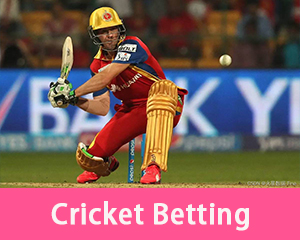Learn how to bet on newly promoted teams in sports with our top strategies for success. Discover key tips to analyze team performance, spot value bets, and boost your betting odds with expert insights!
How Common is Relegation for Newly Promoted Teams?
Every season, in Europe’s top five leagues (Premier League, La Liga, Bundesliga, Serie A, and Ligue 1), three teams get relegated from the top flight, and three new teams are promoted from the division below. In Germany’s Bundesliga, there’s an additional twist: a playoff system determines the final relegation and promotion slots, setting it apart from the other leagues.
Historically, newly promoted teams face significant challenges in staying in the top league for more than three seasons. Data from the past six seasons illustrates the gap in quality between the top and lower divisions, which varies across leagues. For example, in Spain’s La Liga, only about 16.66% of promoted teams are relegated in their first season, reflecting a somewhat manageable gap between La Liga and Segunda División B. Meanwhile, in the Bundesliga, that relegation rate jumps to 41.66%, showing a much wider gap between the Bundesliga and the 2. Bundesliga.
In England’s Premier League, only about 44.5% of promoted teams survive beyond three seasons, emphasizing the difficulty of maintaining their place in such a competitive environment. In Serie A, the gap is even more pronounced, with only 38.89% of promoted teams lasting over three seasons. Interestingly, in the Premier League’s last 15 years, there’s only been one season (2011/12) where all three promoted teams (Queens Park Rangers, Norwich City, and Swansea) managed to avoid relegation.
How Often Do Promoted Teams Pull Off Surprising Wins Against Elite Clubs?
For newly promoted clubs, the opportunity to compete against elite teams is exciting yet daunting. Data from six recent seasons in the Premier League (2010/11 to 2015/16) shows just how difficult it can be for these clubs to secure points against the league’s top six from the previous season. On average, newly promoted teams secure only 0.70 points per game (PPG) in these matchups, with a win rate deficit of 20.39% compared to established teams.
Though sample sizes are smaller for these games, they reveal the tough reality: promoted teams often struggle in matches against top-tier opponents. For example, in the 2013/14 season, Hull City managed just 0.08 PPG against elite clubs, while Swansea, in 2011/12, achieved a notable 1.00 PPG in similar situations. These disparities highlight how some teams adapt better to top-flight challenges, while others find the leap insurmountable.
How Can Bettors Profit from a Newly Promoted Team’s Struggles?
Bookmakers often underestimate the chances of newly promoted teams defeating elite opponents, assigning higher odds to these top teams that may not always be justified. This creates a unique opportunity for bettors who can spot the hidden value. By comparing the implied probability of a promoted team beating a top-six team with the actual probability, sharp bettors can find instances where the odds are in their favor.
For instance, if a promoted team like Sheffield United faces a top-six team and the odds heavily favor the elite club, consider the promoted team’s resilience and form. If the implied odds are far off from realistic expectations, placing a bet on the promoted team—or on specific outcomes like a draw or narrow loss—could yield profitable results.
How to Gauge When a Team Has Truly “Adjusted” to the Higher Division
In general, newly promoted teams will struggle in the top leagues, even if they manage to survive for several seasons. It typically takes years of progress and smart investments for promoted teams to challenge consistently against established top-six teams. Clubs like Leicester City, RB Leipzig, and Eibar are examples of teams that not only survived but eventually thrived due to a balanced, steady approach to improvement and investment.
Success for these clubs isn’t merely a matter of making it to the top league but also of finding the right balance in team-building. Some teams, like Leipzig, invested heavily in player development and recruitment before reaching the top division, allowing them to compete immediately. Others, like Leicester City, focused on smart, incremental improvements over time to establish a competitive squad.
Armed with this knowledge of the typical struggles and opportunities that await promoted teams, bettors can find potential advantages in the upcoming matches. The question is, can you find the betting edge against the bookmakers and make the most of this weekend’s fixtures?















